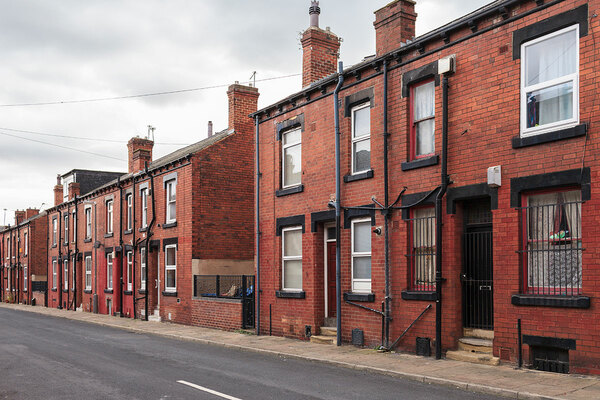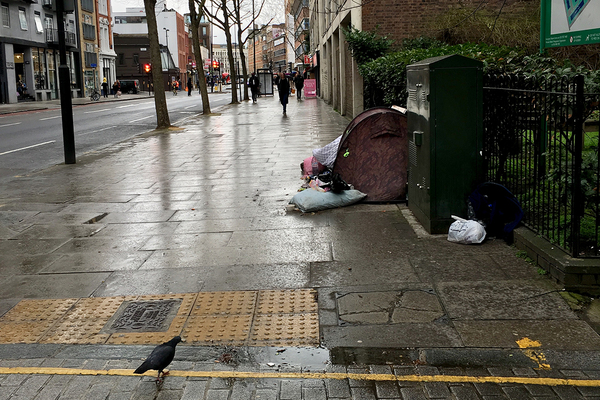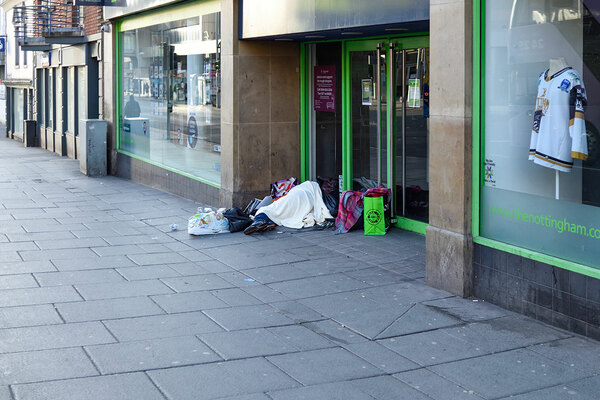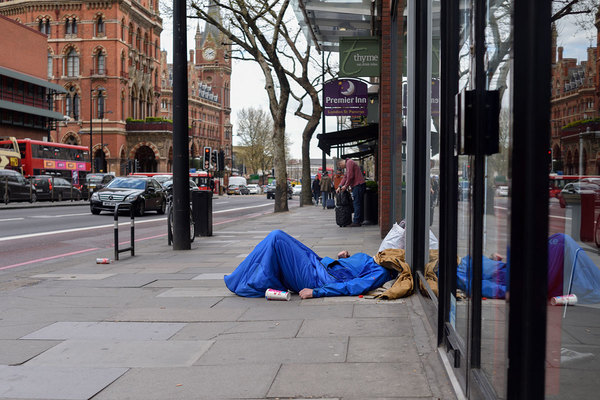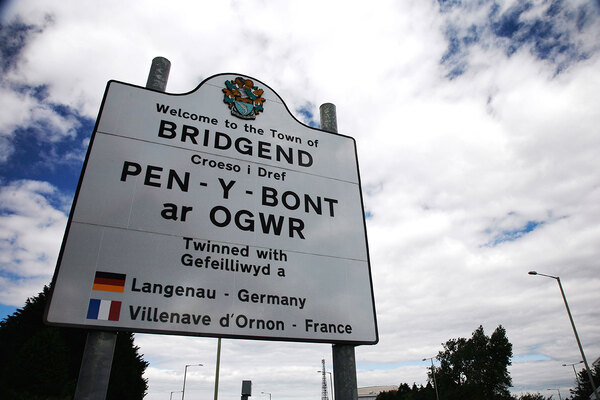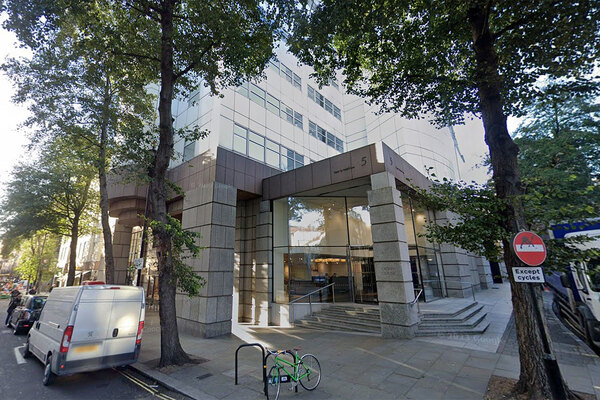You are viewing 1 of your 1 free articles
Government pledges 6,000 new long-term homes for rough sleepers housed during COVID-19 crisis
The government has revealed plans to build 6,000 new long-term homes for rough sleepers taken off the streets during the COVID-19 pandemic.
Housing secretary Robert Jenrick at the weekend unveiled a government pledge to make 3,300 new homes available in the next 12 months.
The announcement comes as the government tussles with the question of where to place the thousands of rough sleepers who have been placed in short-term accommodation such as hotels during the coronavirus crisis.
The money to fund the scheme will be accelerated from the £381m rough sleepers fund announced in March’s Budget. This was initially to fund rough sleepers’ accommodation over a four-year period.
Mr Jenrick said this fund has now been extended to £433m, with a total of £160m to be given in the next 12 months to help with the scheme.
The government said the funding will also cover specialist staff, who will provide services such as mental health and substance abuse support.
To support the plan, the government will work closely with leading housing associations and local authorities to fast-track thousands of units of longer-term accommodation for rough sleepers.
The government has said that it has offered accommodation to 90% of rough sleepers since the pandemic began. However, in recent weeks Inside Housing has reported that there are still hundreds on the streets, with new homeless people joining them every week.
The plans are currently being finalised by the Rough Sleeping Covid 19 Response Taskforce, a recently formed group led by Dame Louise Casey that is focusing on how to ensure that those housed during the coronavirus pandemic can be permanently housed.
Mr Jenrick said: “This government wants to end rough sleeping for good, and we now have a real opportunity to deliver on this moral mission.
“I’m backing this effort with £433m to fast-track the longer-term and safe accommodation needed to ensure as few rough sleepers as possible return to the streets.
“This is an unprecedented commitment – the most ambitious of its kind and the single biggest injection of specialist accommodation since the rough sleepers initiative began.”
John Glenton, director of care and support at Riverside and chair of the National Housing Federation’s Homelessness Steering Group, said: “This commitment to provide 6,000 new homes sooner for people sleeping rough is warmly welcomed.
“Our continuing concerns are that this funding should arrive sooner to provide the full amount of homes this year, as there are at least 5,400 people who have come off the streets as part of ‘Everyone In’ by the government’s own estimation.
“In addition, it is important to note that the last recession led to a 25% increase in homelessness. We have a traumatised system from years of underfunding, so will need to create extra capacity in the homelessness sector to cope with what is estimated to be the sharpest recession for 300 years.
“As such we believe that much more needs to done in order to build sufficient social housing, with at least 90,000 units per year needed to prevent homelessness long term.”
